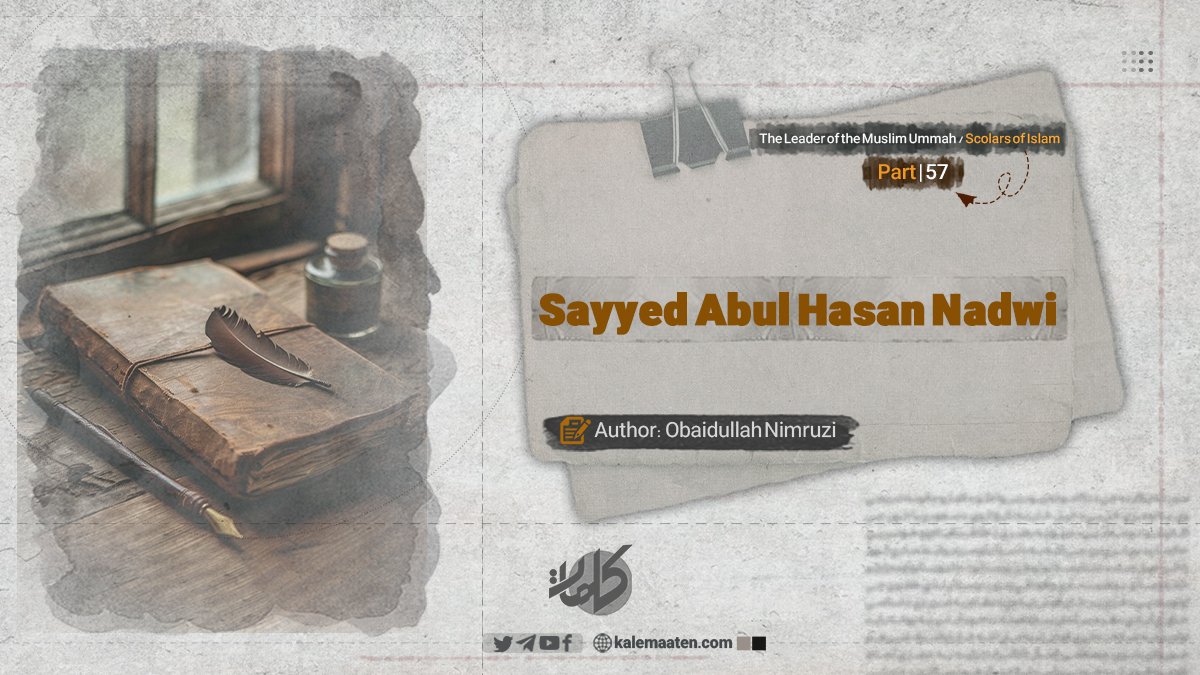
Author: Obaidullah Nimruzi
Allama Sayyed Abul Hasan Nadwi ‘may Allah have mercy on him’ (Part 57)
Frankness and Self-Sufficiency in Front of Rulers
One of the greatest and most honorable qualities of Imam Nadwi was his unparalleled self-sufficiency, which never made him greedy for the aid and assistance of rulers and leaders. Due to this self-sufficiency, he was able to express the truth and the message of Da’wah with the utmost clarity everywhere. Despite the love and respect he had for the Arabs and the rulers of that land, he never refrained from stating the truth and highlighting their shortcomings. Even considering the impressive records of the Turks and the atheistic methods of some of their rulers, he criticized them with complete clarity. These criticisms and frank statements by Mawlana Nadwi originated from his compassion and love, without any other motivation except for benevolence and goodwill.
Mawlana Muhammad Rabeh Nadwi writes: Mawlana met with the kings of Arab and Islamic countries and made each of them benefit from his insightful advice. He pointed out the ruins of their countries and especially advised the kings of Saudi Arabia, Jordan, Morocco, and others to improve their nations’ situations and uphold the Word of Allah. In these meetings, Mawlana always exercised complete restraint and spoke the truth.
This practice of telling the truth and being fearless not only continued in Arab countries but also everywhere, including in his own country. He never hesitated to express his opinions on important issues and did not shy away from any truth in order to protect the sacred boundaries of Sharia and Islam. As he once told the Indian Prime Minister, Atal Bihari Vajpayee: “Mr. Atal, politics is not acceptable in the court of Allah, but honesty and sincerity are. Continue your work with sincerity; success will welcome you, and the paths of progress will open. You will always be accompanied by victory and triumph.”
The lofty sincerity that Mawlana possessed doubled the impact of his speeches. With a heart full of benevolence and compassion, his advice resonated strongly. Not only did the rulers and politicians not feel saddened by his counsel, but they also regarded these moments as turning points and sources of pride in their lives.
For example, when Mawlana fell ill, the politicians and people in power, aware of his frankness and fearlessness, still came to meet him and engaged in close conversations. Even on many occasions when he was not sick, they would visit and converse with him, and sometimes they would even come from abroad to meet with him. For instance, when the ruler of Sharjah entered Nadwat al-Ulama, Mawlana welcomed him with this eloquent remark: “Yes, the supreme Emir is at the gate of the poor.”
Continues…


